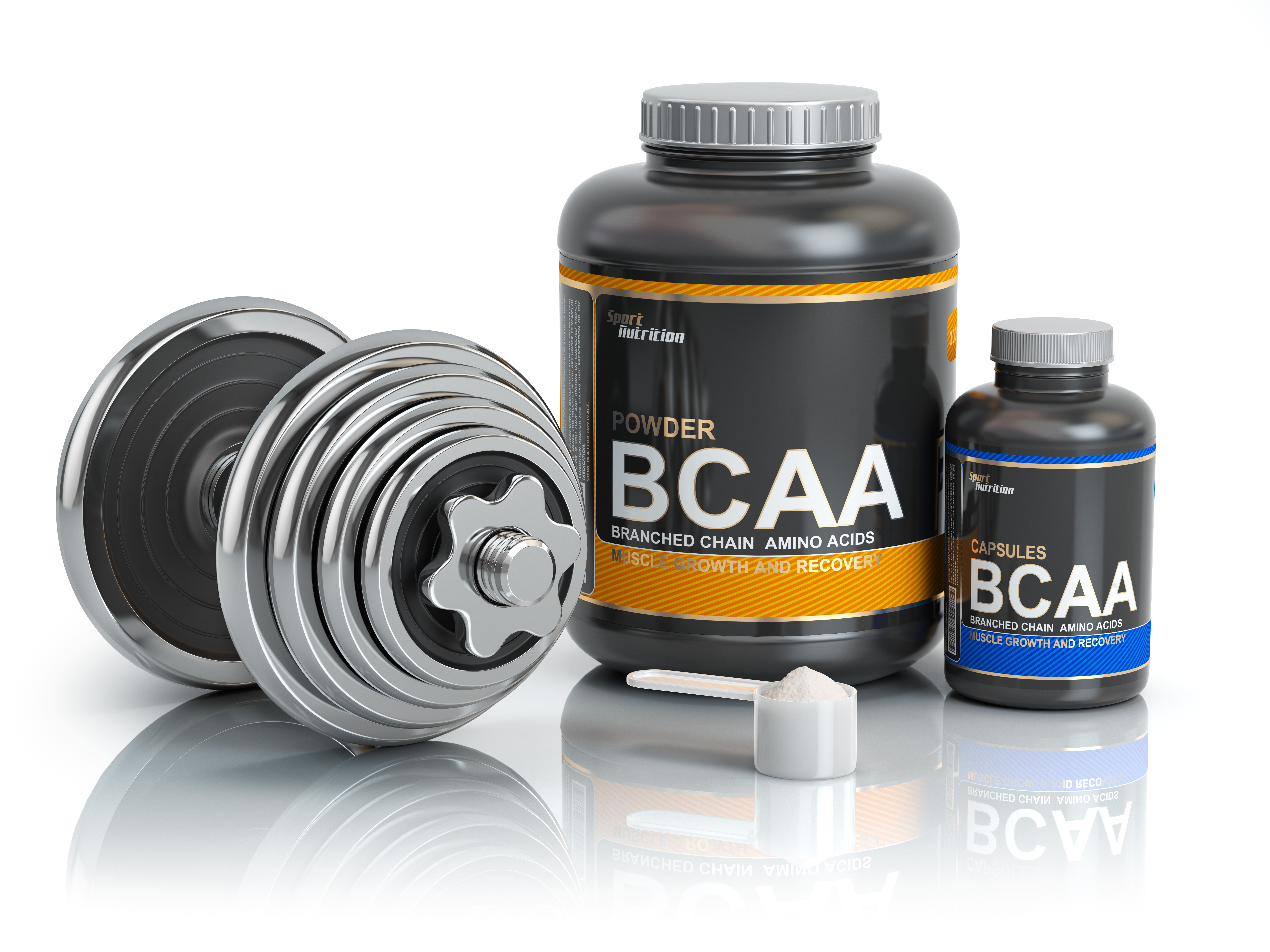Branched-chain amino acids, also known as BCAAs, are certain forms of organic molecules that are the fundamental building blocks of life. The three BCAAs, leucine, isoleucine, and valine are often utilized in athletic supplements among the gym-going and sporting communities. Because leucine, isoleucine, and valine are essential amino acids (the human body cannot produce them), one must consume food rich in BCAAs to help build muscle, reduce muscle fatigue, and reduce soreness. These benefits are often sought after in order to improve physical performance and recovery.
To capitalize on the positive effects of BCAAs, the supplement industry is pushing to sell more BCAA products. However, like many other athletic supplements, BCAAs are rife with misconceptions and click-bait that are often sensationalized in order to misinform their intended audience, inflating their benefits while downplaying their risks. Some good examples, found in a typical fitness center or supplement store, are the products that advertise BCAAs as a revolutionary chemical meant to enhance physical performance with just a simple serving. For the average American who consumes meat on a regular basis, beef and chicken primarily supply all the BCAA required. Most people do not need extra BCAA supplementation to facilitate a healthy and productive lifestyle; only professional and Olympic-level athletes – many of whom exert their bodies to the physical extreme – would see any (minute) benefits from supplementation.
The most pressing concern regarding these misconceptions is the purpose of BCAAs. To aid in muscle synthesis and recovery, some athletes or bodybuilders consume BCAAs. The general premise is that BCAAs produce an anabolic (or energy building) response in the myosin (protein cells) that not only reverses the catabolic (energy breaking) response caused by human metabolism but also increases general muscle growth as well. In simpler terms, BCAAs can help reduce muscle soreness and help in the aforementioned “growth.” Because of this, the multi-million dollar supplement industry heavily promotes BCAAs as if they were a miracle drug. This tactic can mislead individuals to buy pills or powders that could help achieve the physique they desire.
Image Source: Laguna Design
A study from the University of Arkansas of Medical Sciences, published in the Journal of the International Society of Sports Nutrition in 2017, has debunked many of these false claims attributed to BCAA supplementation. The researchers disproved the magnitude of benefits that are commonly claimed in the status quo. Furthermore, they discovered that over-consumption of BCAAs may, in some cases, also speed up the rate of muscle breakdown and decrease the rate of protein synthesis. The opposite of the expected was observed; through intravenous infusion studies of BCAAs into test subjects, the catabolic response exceeded the anabolic response; if IV infusions had lead to a catabolic response, then normal oral consumption would lead to similar results.
Overall, while BCAAs naturally found in a normal human diet are necessary for a healthy, physiological response, the push for BCAA supplementation by the supplement industry is often unwarranted and dubious at best in its efficacy.
Featured Image Source: © Maksym Yemelyanov / Adobe Stock.










